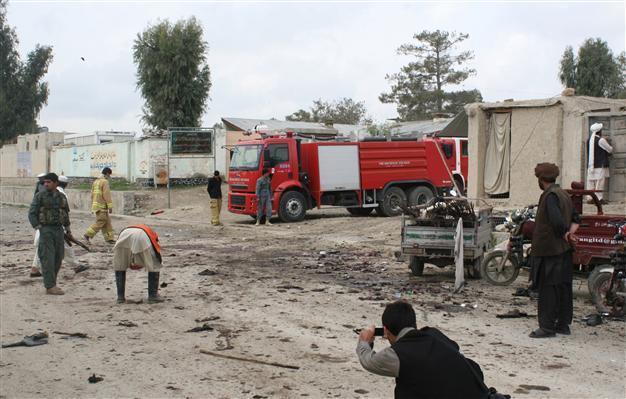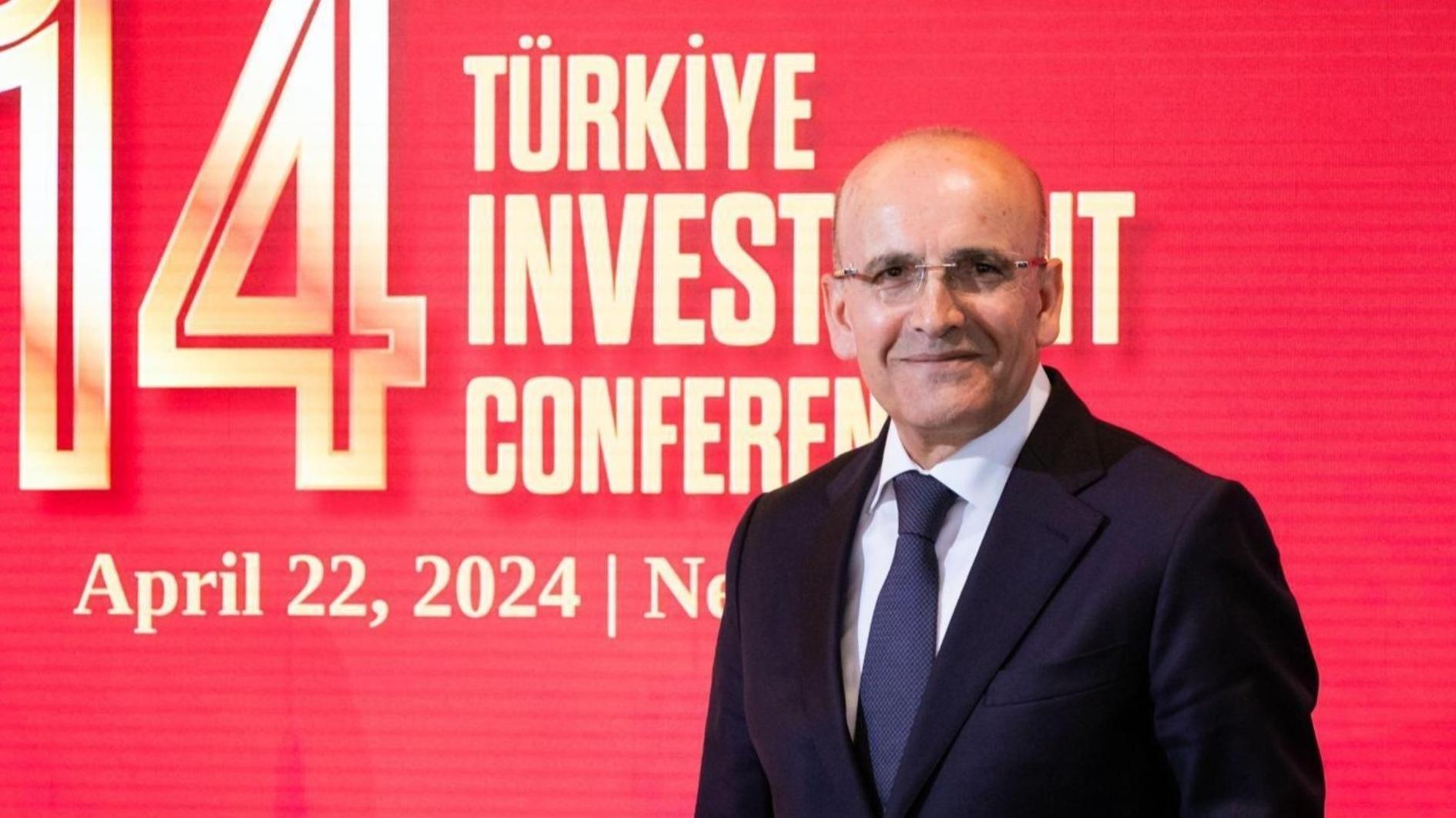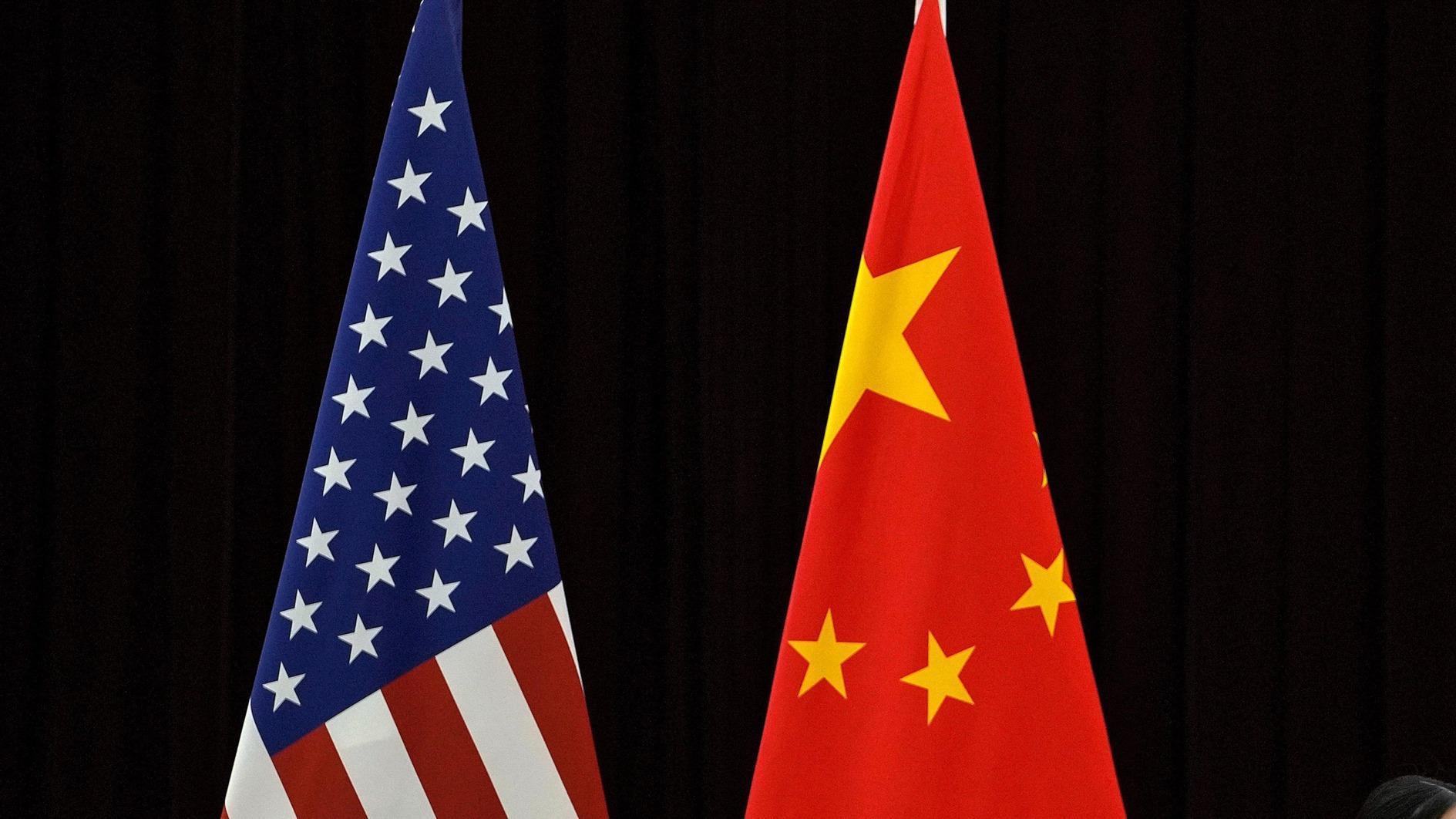Suicide blast kills at least 16 in east Afghanistan: officials
KHOST - Agence France-Presse

Afghan firefighters and others gather at the site of a suicide attack in Khost on April 2, 2015. AFP Photo
A suicide bomber on April 2 killed at least 16 people and wounded around 40 others, including a prominent Afghan lawmaker, in an attack on an anti-corruption protest outside the residence of the governor of restive Khost province, officials said.The attack comes just a week after Washington announced it would not be halving the 9,800 US troops still in Afghanistan by the end of the year, backpedalling on previous plans.
The Taliban, waging a deadly insurgency since they were ousted from power in late 2001, warned that the announcement would damage any prospects of peace talks as they vowed to continue fighting.
"Today morning, a suicide attack was carried out by the enemies of peace and stability of Afghanistan at a rally in the city of Khost, in which 16 people were martyred, and 40 others were wounded," said Abduljabar Naeemi, the acting governor of eastern Khost province, which borders Pakistan.
Humayoun Humayoun, a well-known MP from Khost province, was wounded in the explosion, he added in his statement.
The interior ministry in Kabul said 17 civilians were killed and 37 others were wounded in the explosion, adding that it "strongly condemns the terrorist attack".
Protesters accusing Naeemi of rampant corruption and land grabbing have staged demonstrations outside his residence for nearly a week.
The Taliban denied responsibility for the blast, spokesman Zabihullah Mujahid said on the group's official Twitter account, but suicide bombings have long been a weapon of choice for the militants in their 13-year battle against US-backed foreign forces.
The bombs often target Afghan security forces, but they have also taken a heavy toll on civilians.
The number of civilians killed and wounded in Afghanistan jumped 22 percent in 2014, a recent UN report said, as NATO troops withdrew from combat.
The United Nations Assistance Mission in Afghanistan attributed the rise to an intensification in ground fighting, resulting in a total of 10,548 civilian casualties last year.
President Barack Obama last week reversed plans to withdraw around 5,000 US troops from Afghanistan this year, an overture to the country's new reform-minded leader, President Ashraf Ghani.
A large section of Afghan society welcomed the decision, with many fearing that without continued interna
tional military support, Afghanistan -- like Iraq -- could spiral into chaos.
Afghan forces are bracing for what is expected to be a bloody summer push by the Taliban and the government has also raised the ominous prospect of the Islamic State of Iraq and the Levant (ISIL) making inroads into Afghanistan.
















